
Eastern Europe Explorer Itinerary
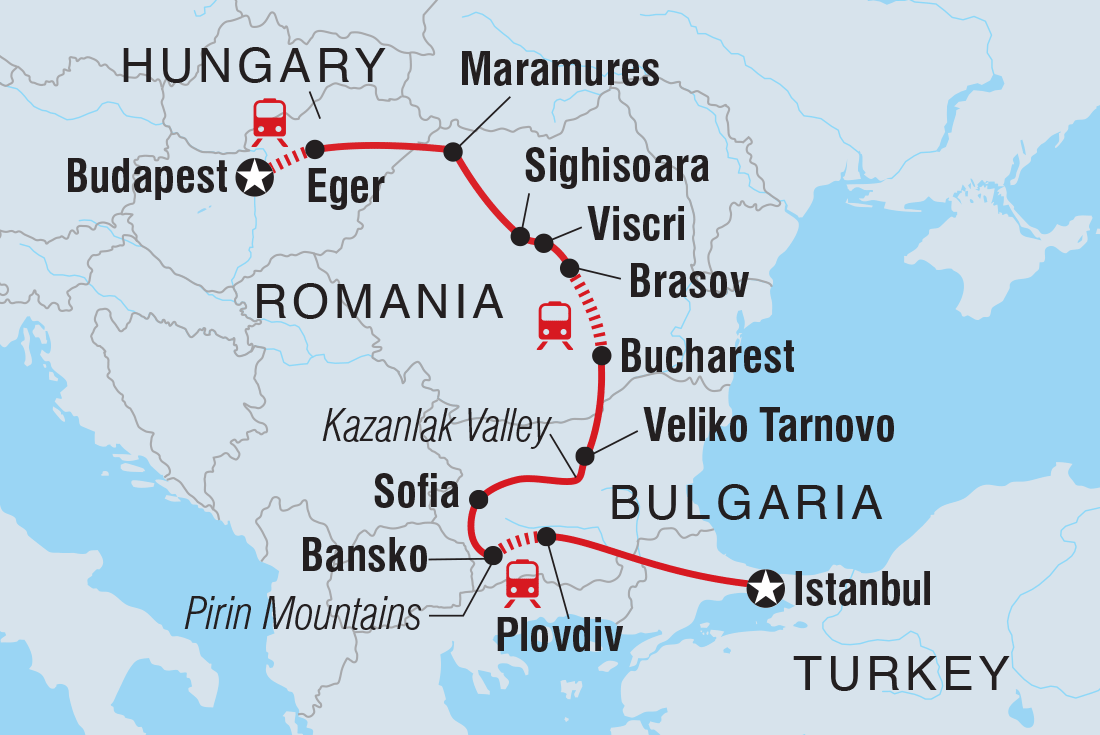


Szia! Welcome to Hungary. Since the collapse of communism, Budapest has experienced something of a renaissance. The grand architecture and boulevards evoke a time gone by, while glamorous stores and restaurants make this one of the truly great cities of Europe. You’ll have a welcome meeting at 6 pm tonight. After, you might like to head out to explore the city by night – the twinkling lights of the evening are an essential part of the Budapest experience. Maybe visit the Jewish Quarter for dinner and explore the many options for a celebratory nightcap.
This morning, take a train east to Eger. This beautifully preserved Baroque town is surrounded by hills and is home to some of the most renowned vineyards in Eastern Europe. Visit the wine cellars of the seductively named Valley of the Beautiful Women to sample some of the town's famous 'Bull's Blood' red wine (which supposedly gave the Hungarian army supernatural strength during their battle against the Ottoman Empire). In your free time, maybe explore Eger's 13th-century castle, which was the scene of the historic siege that thwarted the Ottoman Empire's advancement into Western Europe. Here, you can explore the Gothic Palace, a gallery of fine Hungarian art, and tour underground passageways of archaeological finds. You may also like to check out the town's 19th-century cathedral, the northernmost medieval minaret in Europe for views of the city, or the Minorite church in Dobo Square.
This morning, travel to the pleasant town of Debrecen. While here, you'll have time to explore Deri Square with its fountains, colourful buildings, museums and golden Great Church. Continue by train and private vehicle across the central plains into the Maramures region of Romania – this region may be modernising, but among the traditional wooden houses, churches, music and forests, you can still find parts of life unchanged since medieval times. When you arrive, settle into your room at the pension – your accommodation for the night is run by a local family. Sit down for a homecooked dinner with your group and get to know the locals, their stories and their lifestyle.
Today you’ll discover more about the region of Maramures (mah-ra-moo-resh). Rich in tradition and folklore, the music, costumes, festivals and ancient superstitions of one of the last peasant cultures in Europe continue to thrive here. Maramures is particularly famed for its wooden churches, many of which are World Heritage-listed. Set out on a guided group tour to explore the region, visiting the unique Merry Cemetery in Sapanta, where the life stories of the deceased are displayed on colourful wooden crosses. There are poems, limericks and little pictures illustrating how the person died, all single-handedly carved over 40 years by Stan Ioan Patraş, until 1977 when his apprentice took up the work. You’ll also see other traditional villages including the village museum in Sighetu – an assembly of beautiful local wooden architecture.
This morning, get ready for a scenic drive to Sighisoara – while the name may conjure up images of haunted castles, gothic churches and vampires, this is only a small part of what makes Transylvania such an enchanting and exciting destination. Medieval Sighisoara is likely to seduce visitors more than any other place in Romania. Another UNESCO World Heritage Site, the town was first settled by the Romans but flourished under the Saxons from the 12th century. Take a walk around the old town, which coils up a narrow hill surrounded on all sides by fortified walls and explore the 64-metre-high clock tower that dominates the citadel. The town is famed as the birthplace of Vlad Dracul III, better known as Vlad the Impaler, whose name inspired Bram Stoker’s iconic Count Dracula. Vlad III is revered as a folk hero by Romanians for driving off the invading Ottoman Turks, of which his impaled victims are said to have included as many as 100,000. Tonight, maybe sit down for a traditional Romanian dinner at Casa Dracula.
This morning, take a short drive to the village of Viscri – this small Transylvanian village was originally inhabited by Saxons from the Luxembourg area and the rural landscape is picture-perfect. This idyllic village of red tiled roofs is a UNESCO World Heritage Site, virtually unchanged for 900 years. You’ll visit the town's fortified church (thought to be the oldest in Transylvania).Time permitting, you may even like to go for a horse cart ride through the area, over pastures and through wondrous woods of oak and hornbeam. In the evening, indulge in a home-cooked dinner prepared by a local family, sampling fresh produce, homemade wines and schnapps. Tonight, stay in rustic houses that the locals rent out to visitors.
This morning, you’ll visit the famed Bran Castle. Said to be the inspiration for the home of Bram Stoker's Dracula, the castle isn’t too spooky, but it is undeniably impressive. Perched on a high cliff top and surrounded by pine trees, you’ll explore the castle with your leader and group – this is the perfect photo op! After, travel to Brasov and enjoy free time to explore, checking out the ornate churches, townhouses and squares surrounded by gingerbread-roofed merchants' houses. For those looking for a bit of nightlife tonight, Brasov has plenty of funky bars and restaurants to enjoy once darkness falls.
Today after breakfast, you will enjoy a full free day in Brasov. Also known by its German name of Kronstadt, the town is flanked by mountains and was once a major medieval trading centre. When you arrive, enjoy some free time to wander, take an optional activity or just find a good spot to eat and people-watch. The town's main attraction is the gothic Black Church (Biserica Neagra), which took its name from its blackened appearance after a fire in 1689. Maybe stroll along pedestrianised Strada Republicii, take a cable car up to Mt Tampa, or maybe explore the nearby Rasnov Fortress. The fortification is perched on a rocky hilltop above the town of Rasnov and was constructed by Teutonic Knights in the 13th century as a refuge for the common people from Tartar invaders.
Head south to Bucharest on the train today – the city is increasingly known for its cosmopolitan vibe and energy. While not the most beautiful or stylish city, there are some wonderful art nouveau buildings, ancient churches and monasteries, lush parklands, lakes and elegant boulevards. Romania's capital also likes big things – it’s home to one of Europe's biggest squares, and its Palace of Parliament is the second-largest building in the world! You'll embark on a guided walking tour around town to help you get your bearings, and then you have loads of free time to choose your own adventure. Explore some of the sights further or maybe seek out some traditional home-cooked Romanian food with your fellow travellers.
Today is a free day to explore at your own pace. Maybe join an Urban Adventures Bohemian Bucharest Markets and Mahallas Tour, visit the Former Ceausescu Residence or learn about the region’s history on a Palace of Parliament Tour. Tonight, maybe head out for a drink or dinner and get to know any new travellers joining you.
Travel across the Friendship Bridge into Bulgaria and on to the town of Veliko Tarnovo – founded in 4500 BC by the Neolithic people, the Romans later built the first fortress walls. In the 6th century, a Byzantine capital was established on Tsarevets Hill by Emperor Justinian. After the foundation of the second Bulgarian empire, it became the second most important city in the region (after Constantinople) and trade and culture flourished for the next 200 years. In 1393, the town fell to the Turks who held the city until the Russians liberated it in 1877. When you arrive, head out with your leader for an orientation walk, finishing in the Old Town at a family-owned establishment. Here, a local chef will invite you to an authentic and interactive experience that will showcase the rich history of Bulgarian cheese and wine making. The menu includes tasty items such as truffle cheese, cold cuts and locally produced premium wine – what could be a better introduction?
This morning, visit Veliko Tarnovo's imposing Tsarevets Fortress, which overlooks the city. This once-magnificent fortress was built in the 7th century, and the ruined citadel is the perfect spot to wander. The rest of the day is free for you to explore the City of Tsars. Maybe wander through the Old Quarter, with its preserved Renaissance houses and handicraft workshops or relax in one of the town's cafes or vinarnas (wine bars).
In the morning, take a public bus to Sofia – Bulgaria's capital is a cosmopolitan city with wide tree-lined boulevards and parks. Along the way, stop at Kazanlak Valley, also known as the Valley of Roses. This valley is famous for the growing of the Damascena rose, which is used to produce rose oil – a key ingredient in the perfume industry. After, wander through Etno Village – an open-air museum showcasing Bulgarian culture and crafts from the 18th and 19th centuries. From here, visit the Family Rose Distillery and learn about the distillation process and history of rose oil production. Your last stop is at Thracian Tombs – a UNESCO World Heritage site, known for its well-preserved murals from the Hellenistic period, depicting burial rituals and Thracian culture. Later, continue to Sofia, where you’ll spend the next two nights.
Today is a free day for you to explore at your own pace. Maybe browse around the cured meats and cheese at the Central Market Hall, then walk through the city and see the gold-domed Alexander Nevski Church. This afternoon, maybe sate your cultural curiosity at the National History Museum, discover artefacts at the National Archaeological Museum or spend a couple of hours staring at the local artworks in the National Art Gallery.
Today, journey into the Rila Mountains, where you'll visit the Rila Monastery. Tucked away in a valley, this UNESCO World Heritage site is the largest and holiest of Bulgaria's orthodox monasteries. Founded in 927, the entire complex is a work of art in itself. Check out murals, the 14th-century Hrelyo Tower, the five-domed Birth of the Blessed Virgin Church and the original 19th-century monastery kitchen. Then, carry on to Bansko. Set at the base of the Pirin Mountains, Bansko is home to more than 150 cultural monuments and many of its stone houses have been transformed into mehanes (taverns). Wander through Vazrazhdane and check out the frescoes of the Church of Sveta Troitsa or the paintings in the Rilski Convent. Tonight, indulge in some local cuisine and try filet elena (spicy cured meat) or kapama (simmered meat, rice and sauerkraut), washing it down with some delicious melnik (dark red wine).
Drive to Vihren Chalet – the starting point of today’s hike in the Pirin Mountains. You’ll head to the small but picturesque Okoto Lake for panoramic views over the valley – you might even be able to see the range’s highest peak, Mt Vihren. From here, maybe continue to Banderitsko Lake or opt to stay in Bansko and visit the thermal baths. This afternoon, board the only operational gauge line in Bulgaria – Rhodope Railway. After the scenic ride, you’ll continue to Plovdiv – on the Maritsa River, this city was once the meeting point of two ancient transportation routes. In the evening, maybe wander the bustling city streets and try some of the local grilled meats and vegetables on skewers.
This morning, join a local guide for a tour of the main sights of Plovdiv. The most remarkable being the ancient Roman theatre, accidentally discovered after a landslide exposed the site in the early 1970s. Built in the 2nd century BC during the reign of Trajanus, the theatre seats about 6000 people and is now back in use! From here, wander up to the site of the former hilltop fortress of Nebet Tepe, where you can enjoy excellent views of the city. Head back down to visit the 15th-century Dzhumaya Mosque, which is still in use today. Then, enjoy a free afternoon to explore the city at your own pace – maybe explore the street art and cafes of the Kapana Creative District or learn about Bulgarian culture and traditions at the Ethnographic Museum.
Get ready for a long day of travel today that takes you from Europe to Asia. Grab a window seat if you can and watch the scenery pass you by or get stuck into a good book. You'll be travelling how the locals do – on a bus along the Tsarigrad Road, also named the Road to Istanbul. When you arrive in the continent-straddling metropolis that the Greeks, Romans, Byzantines and Ottomans have called home, you'll have some free time to settle in. Tonight, maybe head out for dinner with your group and indulge in a real Turkish kebab (yum!)
With no further activities planned, your adventure officially comes to an end. If you would like to extend your stay in Istanbul, and it’s recommended that you do, just get in touch with your booking agent ahead of time.
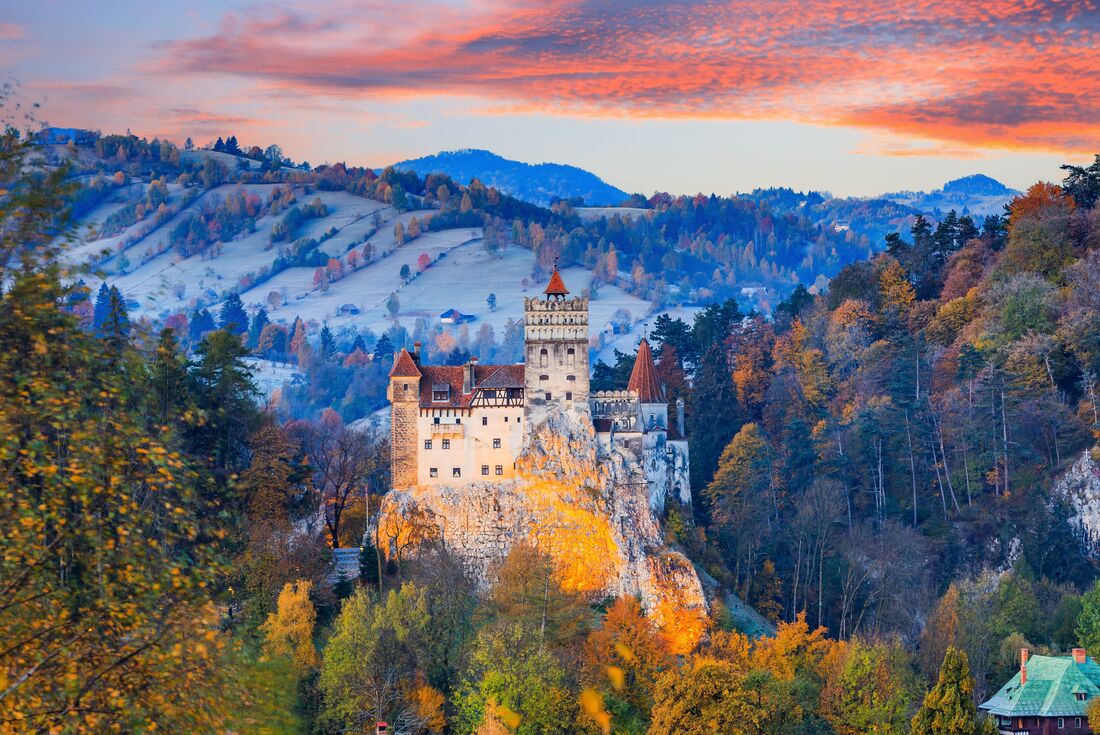
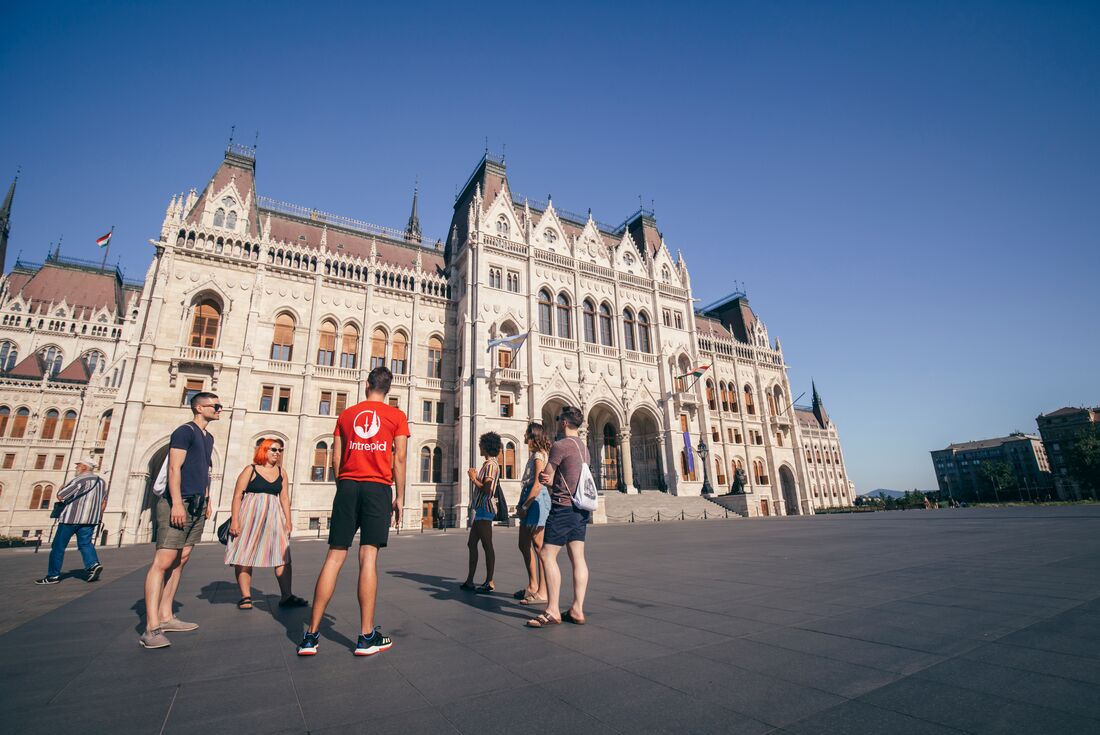
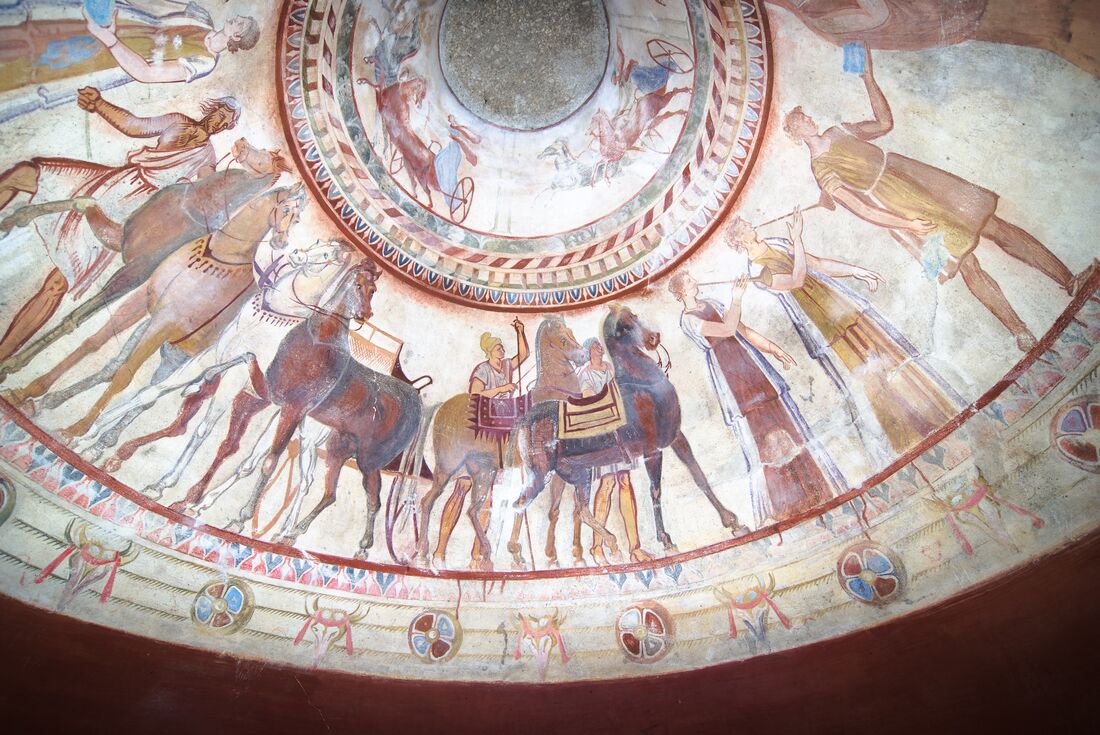
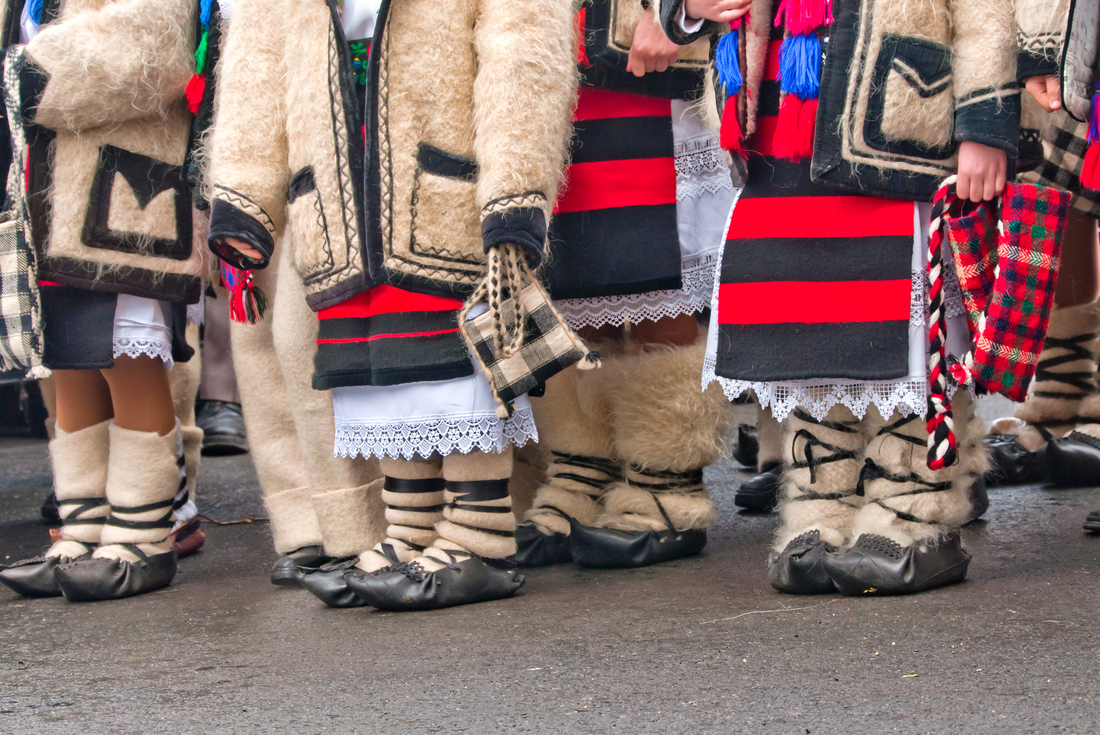
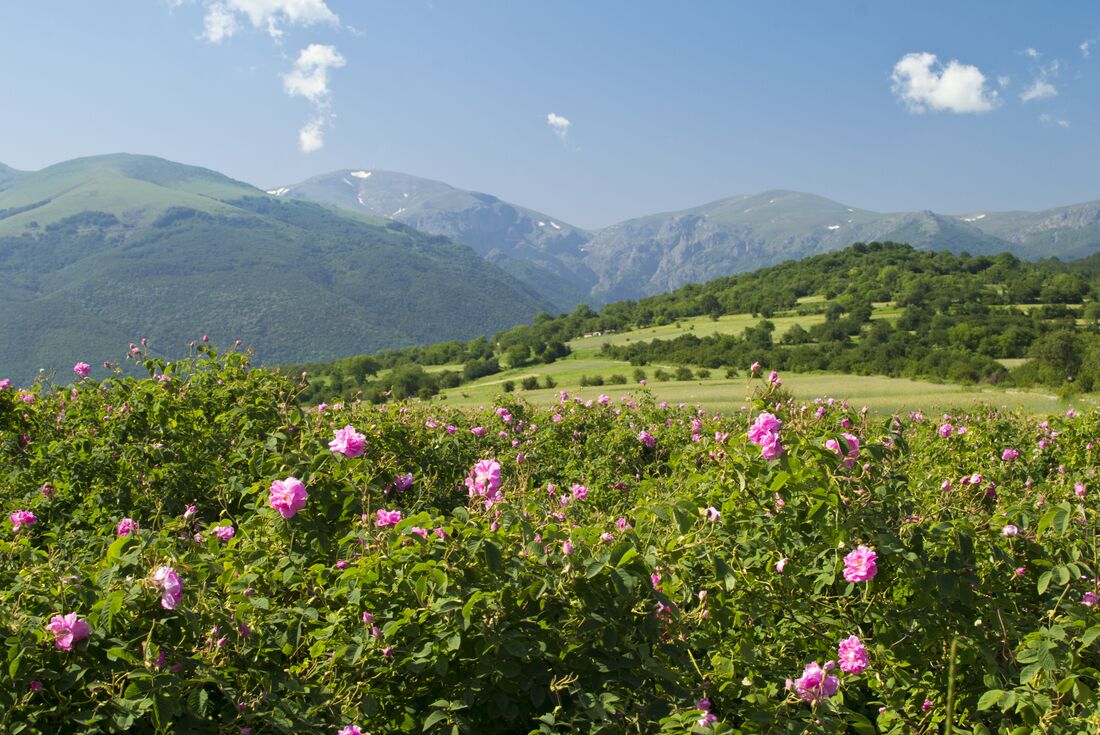
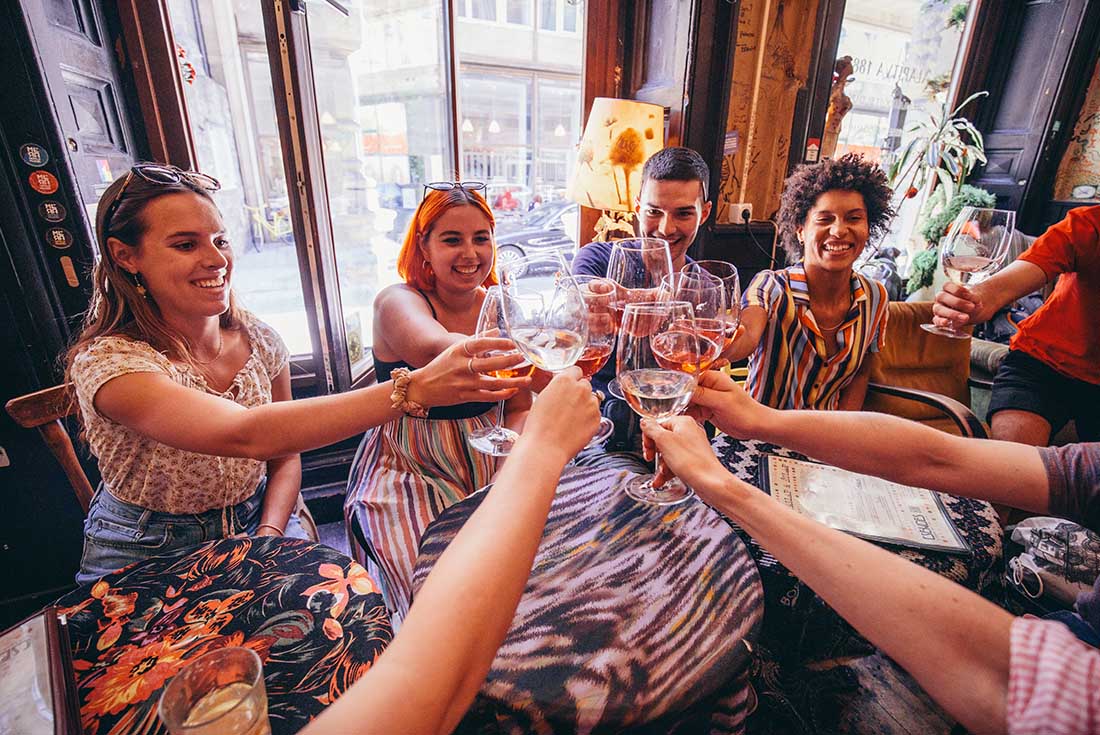
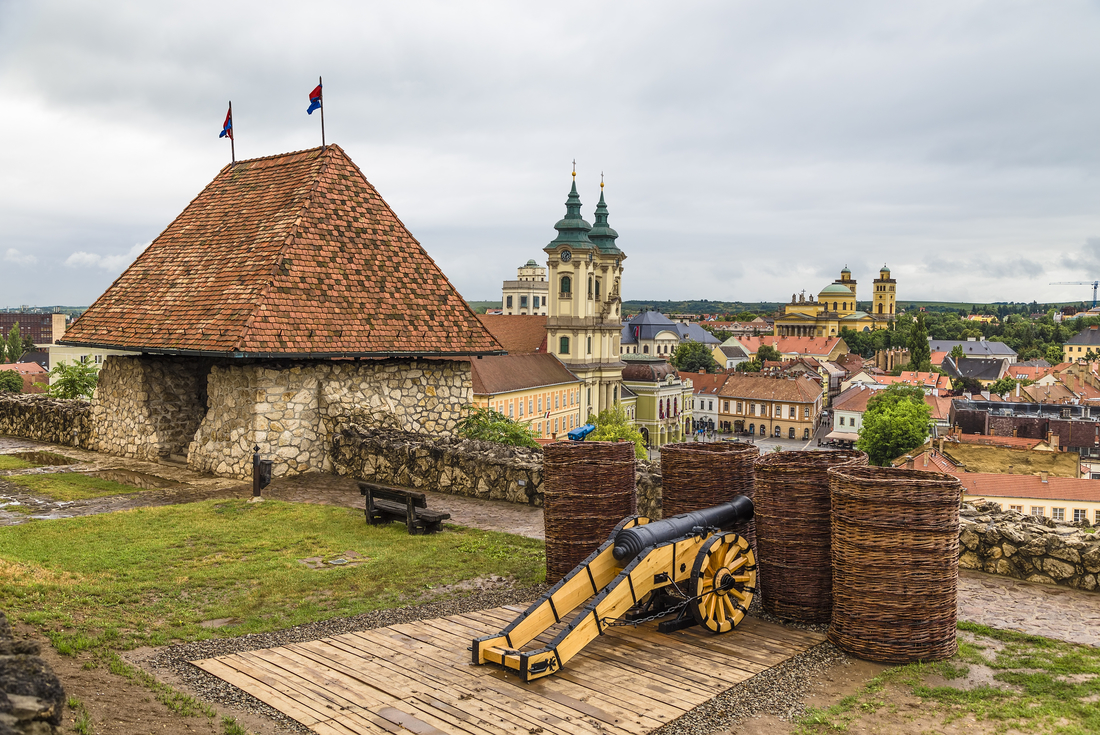
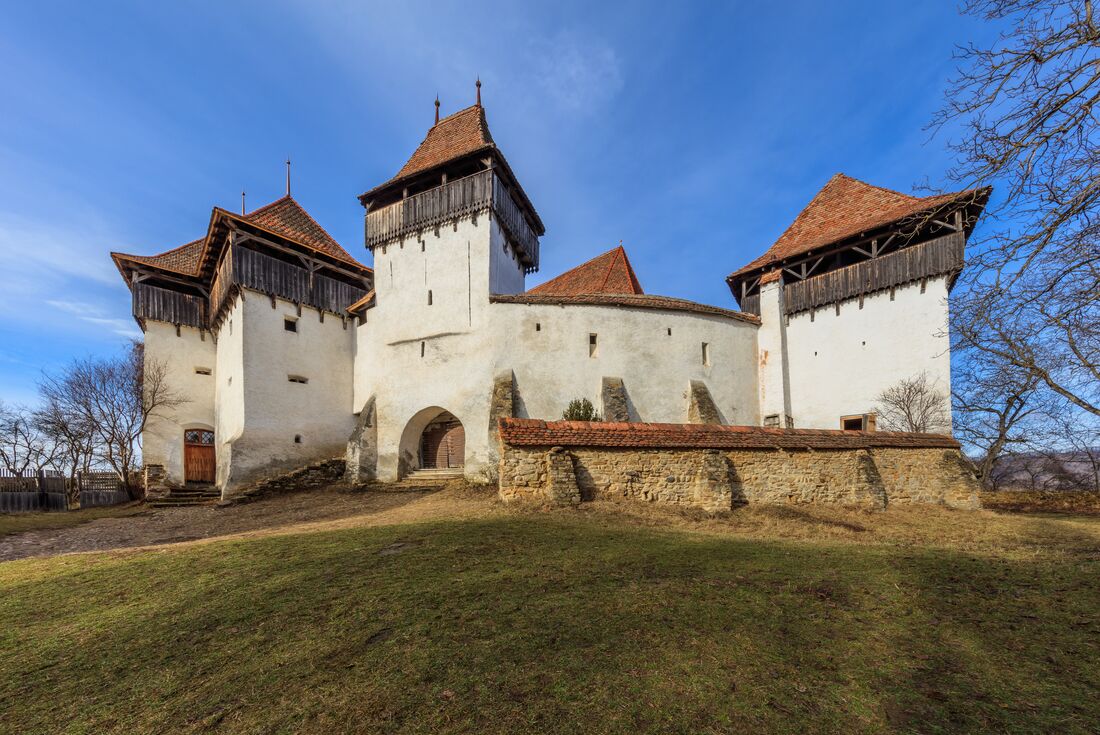
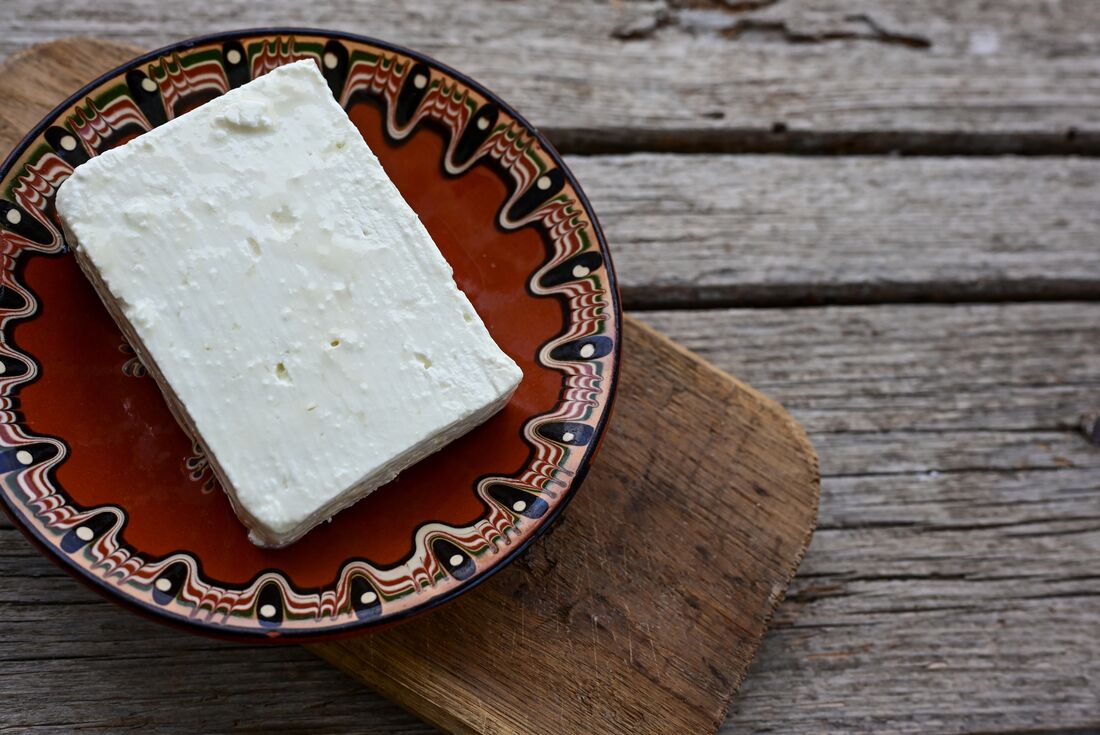
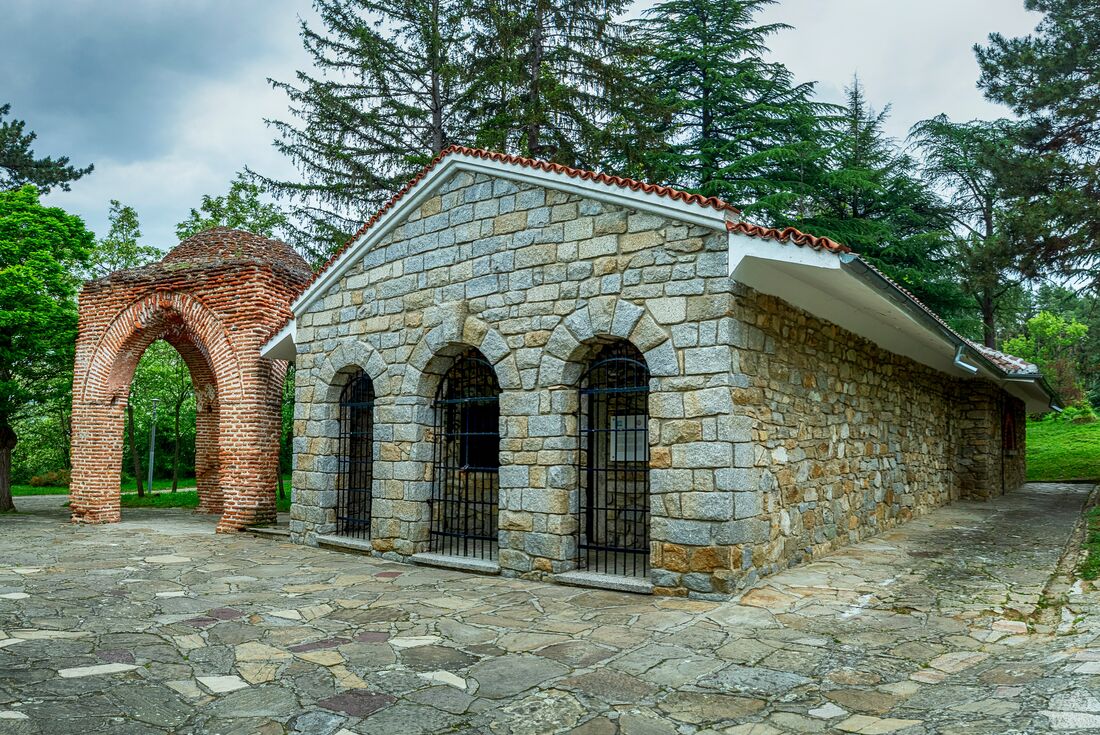
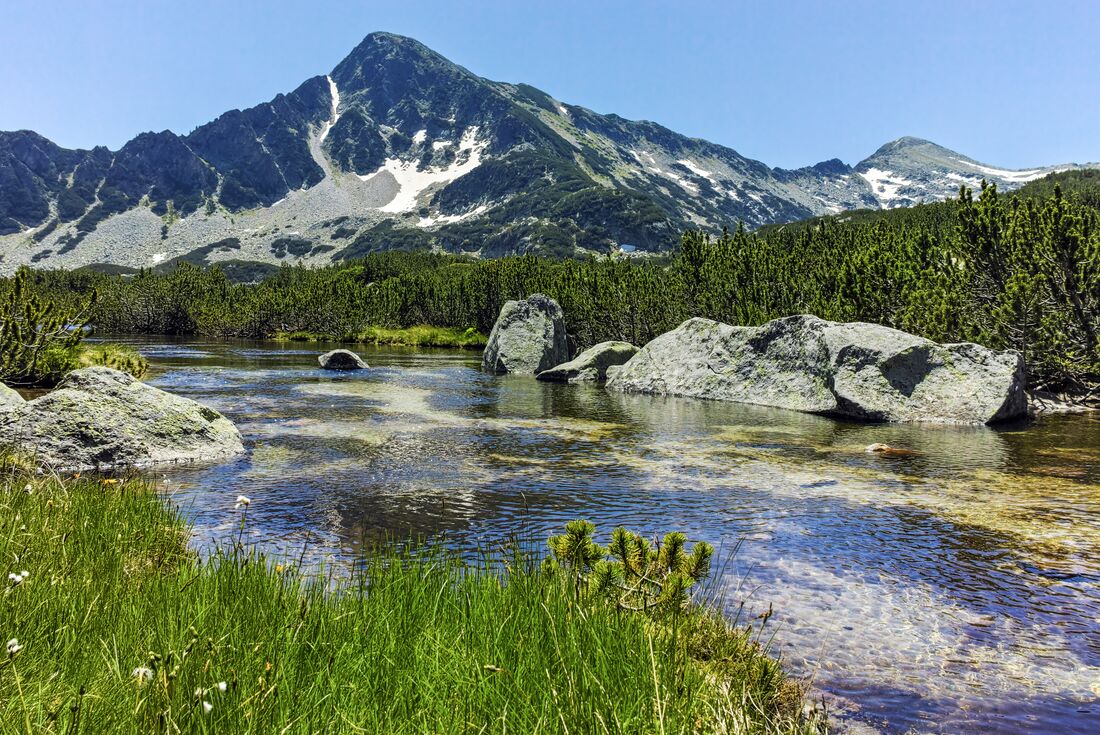
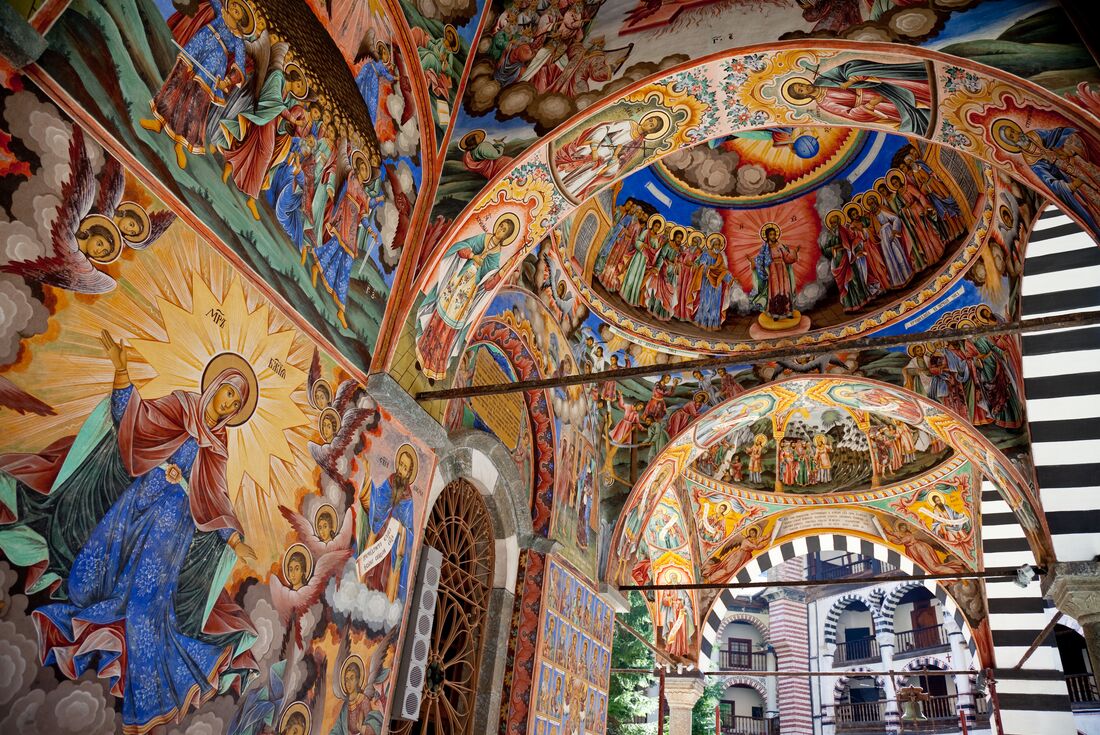
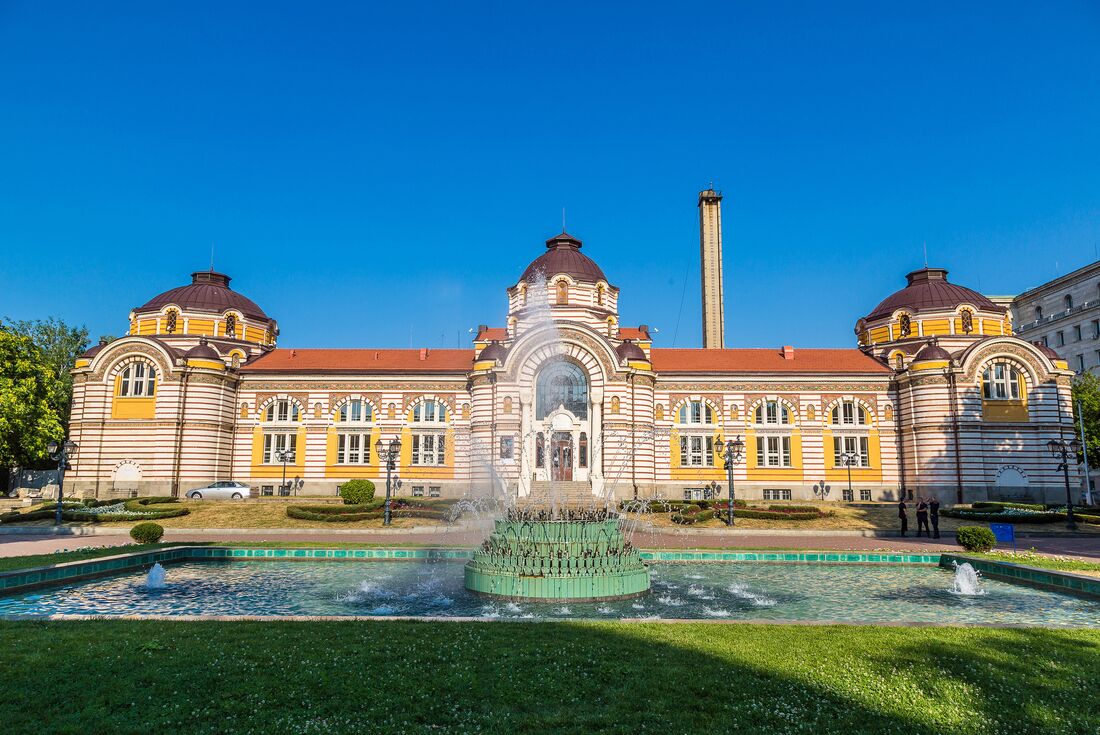
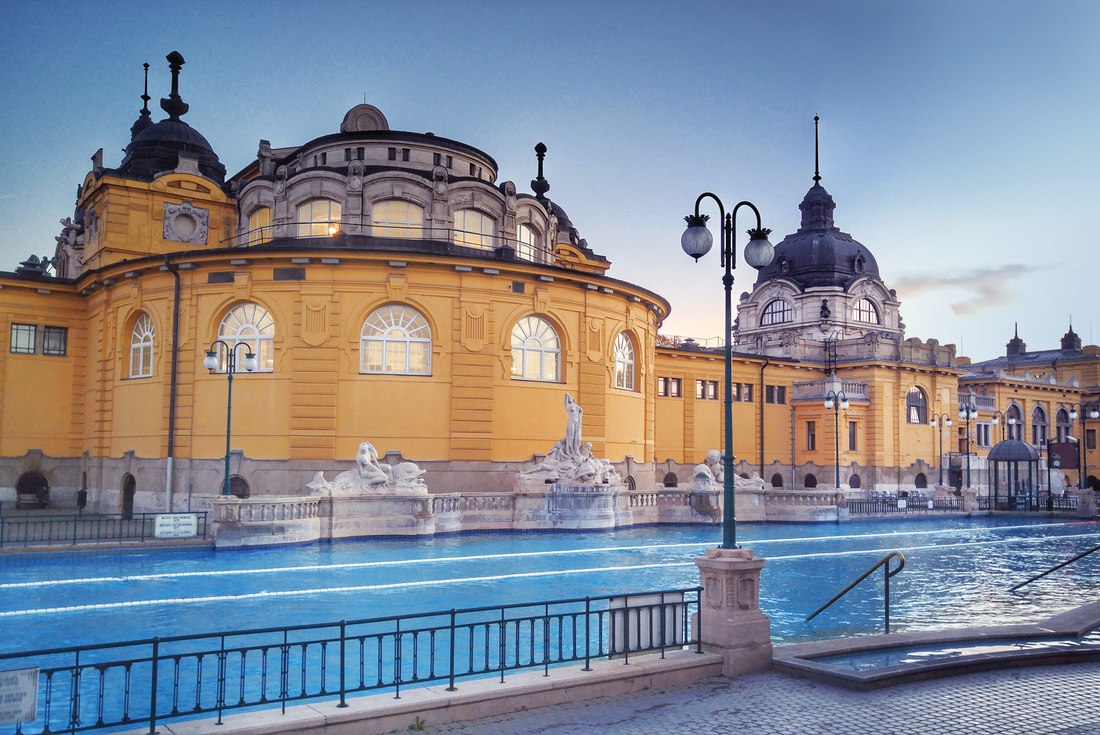
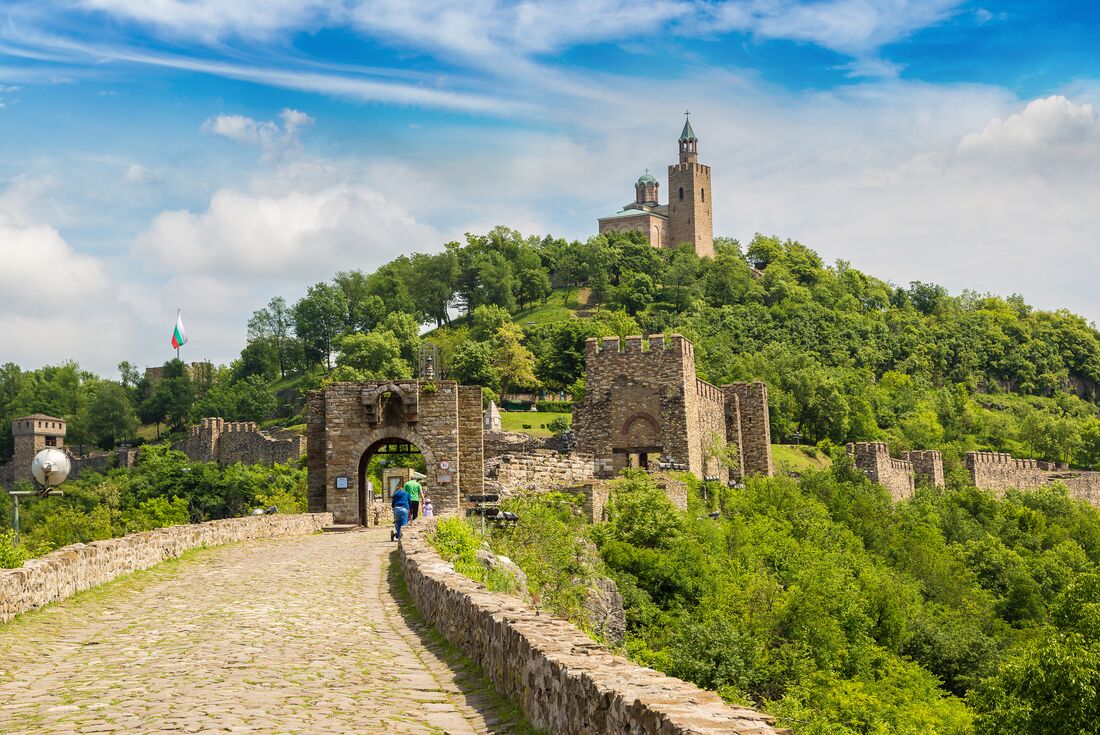
Eger - Wine Sampling
Maramures - Day Tour with Local Guide
Maramures - Sapanta Merry Cemetery
Maramures - Barsana Monastery
Viscri - Local Home Cooked Dinner
Viscri - Fortified Church
Bran Castle - Tour
Bucharest - Walking Tour with Local Guide
Veliko Tarnovo- Orientation Walk
Veliko Tarnovo- Local Cheese and Wine Workshop
Veliko Tarnovo - Tsarevets Fortress
Kazanlak Valley - Tracian tombs
Kazanlak Valley - Family Rose distillery
Kazanlak Valley - Etno Village visit
Sofia - Orientation Walk
Rila - Monastery Visit
Pirin Mountains - Hike (weather dependent)
Rhodope Narrow-Gauge Railway
Plovdiv - Walking Tour with Local Guide
Sample the famous Hungarian 'Bulls’ Blood' in Eger – the wine that supposedly gave the Hungarian army supernatural strength during their battle against the Ottoman Empire.
Learn spooky stories in Transylvania – the birthplace of the world's most famous vampire, Dracula. Then visit Bran Castle in Brasov – the inspiration for Dracula’s home.
Travel through the scenic Rila Mountains in Bulgaria, mingling with monks at the 10th-century Rila Monastery.
Indulge in local Bulgarian cheese and wines with a local chef in Veliko Tarnovo, at their family-owned spot in the Old Town.
Breathe the crisp mountain air on a short hike in the Pirin Mountains in Bulgaria, stopping at a small blue lake surrounded by towering peaks.
NEXTO DORMERO Hotel Budapest, Dessewffy utca 36 , Budapest, 1066, HUNGARY
Manesol Galata Hotel, Arap Cami, Billur Sk. No:1, 34421 Beyoğlu İstanbul, Istanbul, 34421, TURKEY, Phone: +90 2122450000
1. A single supplement is bookable on this trip, excluding Day 6. Availability is limited due to small properties we use. Please speak to your booking agent for further information.
2. You don't have a lot of time in Istanbul at the end of the trip, so if you're keen to explore in depth we recommend you extend your stay at the end of the trip.
3. As this is a combination of 2 trips, your leader and the composition of your group may change in Bucharest.
4. Due to a border crossing with Turkey, we require your full name and passport details at the time of booking in order to secure relevant transfers. Fees may apply for adding or amending details within 60 days of departure.
While we always endeavour to provide the best possible holiday experience, due to the nature of travel and the areas we visit sometimes things can and do go wrong. Should any issue occur while you are on your trip, it is imperative that you discuss this with your group leader or local representative straight away so that they can do their best to rectify the problem and save any potential negative impact on the rest of your trip.
We recognise that there may be times when your group leader or local representative may not be able to resolve a situation to your satisfaction - if this is the case, please ask the group leader or local representative to speak to their direct manager.
You may also choose to provide details in your online feedback, which we ask you to complete within 30 days of the end of your trip. Please do be aware that it is very difficult for us to provide any practical help after the trip is completed, so informing us while still travelling will give us the opportunity to resolve the issue in real-time., For general contact details please use the following page: https://www.intrepidtravel.com/contact-us, In case of a genuine crisis or emergency, you can reach our local office on the numbers below:
, If you have booked an arrival transfer, and you experience severe delays at immigration, baggage collection or customs, or if you are not able to find to the driver, please contact the transfer operator directly on the number listed in the joining point instructions in the section above., Intrepid's Local Operator: +49 8024 4679 540
Information not available.
Sample the famous Hungarian 'Bulls’ Blood' in Eger – the wine that supposedly gave the Hungarian army supernatural strength during their battle against the Ottoman Empire., Learn spooky stories in Transylvania – the birthplace of the world's most famous vampire, Dracula. Then visit Bran Castle in Brasov – the inspiration for Dracula’s home., Travel through the scenic Rila Mountains in Bulgaria, mingling with monks at the 10th-century Rila Monastery., Indulge in local Bulgarian cheese and wines with a local chef in Veliko Tarnovo, at their family-owned spot in the Old Town., Breathe the crisp mountain air on a short hike in the Pirin Mountains in Bulgaria, stopping at a small blue lake surrounded by towering peaks.
All Intrepid group trips in Europe are accompanied by one of our local European group leaders. ’Local’ in this context means a leader who is European or lives in Europe. The aim of the group leader is to take the hassle out of your travels and to help you have the best trip possible. Intrepid endeavours to provide the services of an experienced leader however, due to the seasonality of travel, rare situations may arise where your leader is new to a particular region or training other group leaders. Your leader takes care of logistics, will provide information on the places you are travelling through, offer suggestions for things to do and see, recommend great local eating venues and introduce you to our local friends. While not being guides in the traditional sense you can expect them to have a broad general knowledge of the places visited on the trip, including historical, cultural, religious and social aspects.
At Intrepid we also aim to support local guides in the individual cities or locations we travel to. If you are interested in delving deeper into the local culture at a specific site or location then your leader can recommend an optional local guide service in most of the main destinations of your trip.
TRAVEL ADVISORIES & ALERTS
We recommend that you check your government's foreign travel advisory for the latest information about the destination before you travel. You will also need to ensure that your travel insurance covers you for all destinations and activities on your trip. We also recommend saving the phone number for emergency consular assistance for your government’s consulate in the destination/s you’ll be travelling. Links to travel advisories and any current travel alerts for our trips can be found here: https://www.intrepidtravel.com/travel-alerts
PERSONAL SAFETY
Ensure you have a secure method of carrying your passport, phone, credit cards and cash while travelling such as a money belt. Leave all other high value items, including jewellery, at home Use safety deposit boxes at hotels to store your valuables when available and ensure your luggage is lockable. Be aware of the risk of pick-pocketing and petty theft. Exercise caution when walking at night, don’t walk alone and stick to well-lit streets wherever possible. Be vigilant on public transport and look out for your fellow travellers. Take precautions such as carrying your bag in front of you and never leaving personal items unattended.
LGBTQIA+ TRAVELLERS
Intrepid welcomes all LGBTQIA+ customers on our trips, however we operate in parts of the world that are less accepting. We support LGBTQIA+ customers to travel to these destinations and are committed to ensuring they face no discrimination on any part of the trip we control. We recommend you visit Equaldex (https://www.equaldex.com/) and your government's foreign travel advice for LGBTQIA+ travellers when choosing your trip., https://www.intrepidtravel.com/safety-guidelines, PETTY THEFT AND PERSONAL SAFETY
While travelling there is always the risk of pick-pocketing and petty theft, particularly in the more touristy cities. We recommend that you exercise caution when walking alone at night and encourage you to walk together and only on main, well-lit thoroughfares. Be particularly vigilant on public transport. Simple measures like carrying your day pack on your front, not hanging your bag over the back of your chair or on the floor and wearing a money belt will reduce any chance that your valuables should go missing., TAXIS AND RIDESHARE
We recommend using rideshare apps like Uber or Bolt, where available. They provide clear pricing and make communication easier. Please speak to your leader about using taxis in locations where rideshare options aren't available.
SCAMS
Common scams operating in Europe include ploys to get you fined on the metro without a validated ticket. Ensure that you always have your ticket stamped. Another common scam is for children to distract you with a map or a newspaper and will then steal your valuables. You may also come across shell games on the street, where players engage you in a bet, which you will lose., FIRE PRECAUTIONS
Local laws governing tourism facilities in this region may differ from those in your home country and accommodation we use may not have a fire exit, fire extinguishers or smoke alarms., BEARS
Romania and Bulgaria are home to some of the last remaining populations of European Brown Bear. These beautiful and endangered animals are generally nocturnal and feed mainly on berries, fruit, and small animals. It is not unknown for people to come across wild bears whilst hiking in the mountains. Whilst the danger to humans is minimal there are some simple steps you can follow to ensure your safety. Never stay out in the mountains after dusk, always stick to the path, make plenty of noise (for instance by talking or whistling) as you walk and never approach or take photographs of a wild bear. Take particular care around mothers with cubs or injured bears. Handled carefully, a chance sighting of a bear can be a highlight of a trip to Bulgaria or Romania, as long as these simple rules are followed.
PASSPORT
You’ll need a valid passport to travel internationally and most countries require your passport to have a minimum of 6 months validity, so remember to check the expiry date.
We need your passport information to get everything ready for your trip so it’s important that the information on your booking matches your passport exactly. Please take care to provide the correct details. We recommend carrying a copy of the photo page of your passport while travelling and leaving a copy at home with family or friends.
VISAS & ENTRY REQUIREMENTS
Many countries require a visa and obtaining the correct visa for your trip and any countries you may transit through is your responsibility. We recommend you check your visa requirements as soon as you have booked your trip. This will ensure you have time to prepare your documents and for your visa application to be processed. You can check the entry requirements for your nationality on your government's foreign travel advisories, consular websites or on our page here: www.intrepidtravel.com/visa-entry-requirements
Information not available.
Validity: 01 Jan 2026 to 31 Dec 2026
GENERAL HEALTH
All travellers need to be in good physical health in order to participate fully on this trip. For the safety and wellbeing of yourself and others, if you are unwell prior to travelling, please stay at home and contact us to make alternative arrangements.
When selecting your trip please make sure you have read through the itinerary carefully and assess your ability to manage and enjoy our style of travel. Please note that if in the assessment of our group leader or local representative a traveller is unable to complete the itinerary without undue risk to themselves and/or the rest of the group, we reserve the right to exclude them from all or part of a trip without refund.
You should consult your doctor for up-to-date medical travel information or for any necessary vaccinations before departure. We recommend that you carry a first aid kit as well as any personal medical requirements in their original packaging as they may not easily be obtained while travelling. If you are carrying medication, ensure you check your government's foreign travel advice for any local restrictions or requirements.
While travelling with us you'll experience the vast array of wonderful food available in the world. Your group leader or local representative will be able to suggest restaurants to try during your trip. To give you the maximum flexibility in deciding where, what and with whom to eat, generally not all meals are included in the trip price. This also gives you more budgeting flexibility. As a rule, our groups tend to eat together to enable you to taste a larger variety of dishes and enjoy each other's company. If you have dietary requirements and/or food allergies, please let your booking agent know prior to departure., BREAKFASTS
There are some continental breakfasts included on this trip which may simply include bread/toast or pastries, butter, jam, coffee/tea/juice (or similar)., VEGETARIANS
Vegetarians might find the menu selection in Europe less varied than they would see at home. Vegetarianism is not as common in this region and generally the choices are basic, involving vegetables, soups, salads, bread, cheese, fruit, yoghurt, eggs etc. Vegans and those on gluten-free diets may find this region very challenging and may need to supplement meals with their own supplies from supermarkets and markets. Wherever possible we will cater for dietary needs for any included meals, but there may be times when those with special requirements may need to provide their own.
SPENDING MONEY
When it comes to spending money on the trip, every traveller is a little different. You know your spending habits better than we do, so please budget an appropriate amount for things like optional meals, drinks, shopping, optional activities, and laundry. Make sure you have read the itinerary and inclusions thoroughly so you know what is included in the trip price and what you may need to pay for while travelling. , The local currency in Hungary is the Hungarian Forint (HUF), The local currency in Romania is the Romanian New Leu (RON), The local currency in Bulgaria is the Bulgarian Lev (BGN), TURKEY
The Turkish Lira (TRY) is the official currency in Turkey. Most goods and services can be paid for using the local currency. Given the fluctuating value of TRY, we recommend reviewing the exchange rates as your trip approaches. For everyday costs, eg meals, we recommend paying in TRY. EUR and USD are accepted for larger purchases, eg hot air ballooning. You can use your credit/debit card in ATMs, which are common throughout Turkey. Smaller venues take cash only.
Turkey is often misjudged when it comes to costs you might have as a tourist, eg dining out and shopping. Prices can also vary considerably between regions. Cities like Istanbul and Antalya are very European and the standard of restaurants and cafes is very high so costs are equivalent to their European counterparts. Eating in local restaurants, roadside stalls and markets is still inexpensive and lots of fun. Budgets are a personal choice but please don't expect Turkey to be a budget destination., TIPPING
Tipping can be an appropriate way to recognise great service when travelling. While it may not be customary in your home country, it is an entrenched feature of the tourism industry across many of our destinations and is greatly appreciated by the people who take care of you during your travels. It is always best to avoid tipping with coins, very small denomination notes, or dirty and ripped notes, as this can be regarded as an insult rather than the goodwill gesture it is intended to be., We recommend budgeting approximately EUR 10-20 per person per week to tip local service providers for activities included in this trip, in local currencies. This doesn’t include a tip for your leader., YOUR GROUP LEADER OR LOCAL REPRESENTATIVE
Tipping your group leader or local representative is highly appreciated if you feel they’ve provided outstanding services throughout your trip. The amount is entirely a personal preference; however, as a guideline, the recommended amount is 4-7 USD or EUR per traveller per day (in a currency relevant to your destination). Of course, you are free to tip more or less as you see fit, depending on your perception of service quality and the length and involvement of your group leader or local representative on your trip., CONTINGENCY FUNDS
We try to plan for every eventuality, but there are still some things beyond our control. We reserve the right to change an itinerary after departure due to local circumstances or a Force Majeure Event. In such emergency circumstances, the additional cost of any necessary itinerary alterations will be covered by you. Please note we are not responsible for any incidental expenses that may be incurred as a result of the change of itineraries including but not limited to visas, vaccinations or non-refundable flights. Make sure you have access to an extra US$500 for emergencies (e.g. severe weather, natural disasters, civil unrest) or other events that result in unavoidable changes to the itinerary (e.g. transport strikes or cancellations, airport closures). Sometimes these things necessitate last-minute changes to enable our trips to continue to run, and as a result, there may be some extra costs involved. The recommended amount is listed in USD for the relatability of universal travellers, however, local currency may be needed once in the country to cover these costs.
Most travellers prefer to take a small to medium wheeled suitcase, which is a great size for the packing capacity in our private vehicles. Whatever you take, be mindful that you will need to be able to carry your own luggage, handle it at airports, take it in/out of accommodation and perhaps even walk short distances. We recommend you pack as lightly as possible.
If your trip includes travelling on overnight trains or primarily using public transport, the smaller your luggage, the easier it will be to store under or above bunks. Large suitcases may not be able to be taken on board. A lockable bag or small padlock for your bag will be useful, especially when travelling on public transportation as well.
When you're exploring during the day, you'll also need a day pack/bag to carry water, a camera, a jacket and activity-specific items like a swimsuit, a waterproof pouch/bag for your phone, or hiking shoes.
Below we have listed the essentials for this trip:, https://www.intrepidtravel.com/packing-list, WATER BOTTLE
Please bring your own water bottle to refill. Although it can be difficult to avoid bottled water when travelling, please use the water dispensers which are provided on some of our vehicles and at some of our accommodation. When unable to avoid bottled water, it is better to buy the largest available and distribute it into your smaller bottle for the day. Some travellers like to bring a bottle with its own filtration system or water purification tablets. If you are walking or trekking as part of your trip, you will need to carry at least 2 litres of water with you., TRAVELLING ON LOCAL TRANSPORT
It's important that your bags can be locked, as on local transport it may be necessary that your luggage gets stowed separately (and unattended). The smaller your bag the better for you and other passengers. To ensure maximum comfort, try to pack small and light., IMAGES FROM HOME
During our trip, there will be many opportunities for you to meet and talk with locals. One way to start any conversation is with pictures. We recommend that you bring some photos/postcards of your family, home, city or country where you live, animals peculiar to your country, etc.
SUMMER
Summer temperatures can be extreme in many of the regions visited (over 40°C/104°F), which can be uncomfortable. It’s important to use sun protection and drink plenty of water. Please carefully consider the time of the year you wish to travel and your suitability to that season.
SHOULDER SEASON
In contrast, weather in shoulder season can be unpredictable, and snow is not unheard of at higher altitudes. If you travel at the start or towards the end of the European season please pack accordingly with warm and/or waterproof clothes (preferably layers). The advantage of travelling during this time is that there are less tourists around., RAMADAN
The important month of Ramadan is expected to be in progress 16 February to 18 March 2026 and the Eid ul-Fitr festival will be held directly at its conclusion for 3-4 days. Ramadan is a festival of sacrifice where the devout refrain from eating or drinking during daylight hours. During Ramadan, business hours are shortened, including opening hours at some tourist attractions. Alcohol is not permitted during daylight hours and many restaurants will be closed. While you should expect some delays and inconveniences during this period, the month is a fantastic opportunity to travel in a Muslim country and witness this unique period, particularly the nightly celebrations when the sun sets and the fast is broken. Please note that although the Eid ul-Fitr festival can also be a fascinating time to travel it's a period of national holiday. Most government offices and businesses will be closed and some tourist site opening hours may be affected.
Intrepid won't tolerate any kind of violence, harassment (whether physical, verbal or sexual), or disrespect toward fellow travellers, our teams or local communities.
To ensure the wellbeing of everyone on the trip, decisions made by your group leader are final.
Romantic relationships between travellers and group leader or local representative are not permitted while on trip.
Any behaviour that prevents your leader from continuing the itinerary as planned, breaks local laws or opposes any of these guidelines may result in Intrepid denying your booking or removing you from the trip.
If something concerns you during your travels, please speak to your group leader immediately. Alternatively, you can contact us on the emergency contact number detailed in the Problems and Emergency Contact Information section of this Essential Trip Information.
The style of accommodation indicated in the day-to-day itinerary is a guideline only and may change. On some occasions, alternative arrangements may need to be made due to the lack of availability of rooms in our preferred accommodation. In these cases, we will use a similar standard of accommodation.
Throughout the trip, we request that our properties prepare rooms in time for our arrival, especially if we're arriving prior to normal check-in time. However, this isn't always possible which means we won't be able to check-in immediately on arrival at some hotels. Instead, we can store our luggage and explore our new destination or on some trips, have use of shared day rooms until all rooms are available.
, OCCASIONAL ALTERNATIVE ACCOMMODATION
The style of accommodation indicated in the day-to-day itinerary is a guideline. On rare occasions, alternative arrangements may need to be made due to the lack of availability of rooms in our usual accommodation. A similar standard of accommodation will be used in these instances.
TWIN SHARE BASIS
Accommodation on this trip is on a twin/multishare basis. We pair up solo travellers with another traveller of the same gender as per the gender marker on each of their passports. Please note there may be times where facilities will be shared rather than ensuite and rare occasions when you share a room with passengers travelling on different Intrepid trips than your own.
CHECK-IN TIME
Throughout the trip we request that our hotels prepare rooms in time for our arrival, especially if we're arriving prior to normal check-in time. However this isn't always possible which means we won't be able to check-in immediately on arrival at some hotels. Instead, we can store our luggage and explore our new destination.
PRE/POST TRIP ACCOMMODATION
If you've purchased pre-trip or post-trip accommodation (if available), you may be required to change rooms from your trip accommodation for these extra nights.
FACILITIES
Your accommodation may not always have private en suite facilities or air-conditioning. European hotels generally don't provide kettles or fridges.
TRANSPORT IN EUROPE
Half the fun of travel is the travelling itself, that's why we like to travel the local way – whether that means mingling with commuters on a local train, watching the scenery roll by from the window of a long distance bus, arriving on a high speed train in the city centre of your next destination, or navigating each city's public transport system. In Europe, you are guaranteed to travel by genuine local public transport wherever possible, which puts you right in the centre of the action., LONG TRAVEL DAYS
As we cover lots of ground on this trip, expect some long travel days on local trains and buses. This is an opportunity to mix with the locals and enjoy the scenery out the window. Travel schedules are known to change with little notice. Not all transport may have air conditioning.
Travel insurance is compulsory on all our trips for those travelling internationally. We require that, at a minimum, you are covered for medical expenses, including emergency repatriation. If you are travelling within your home country or region, please confirm before travel that you are entitled to access the public medical system easily should an accident occur. We strongly recommend all travellers have a policy that also covers personal liability, cancellation, curtailment and loss of luggage or personal effects. For international trips, you will not be permitted to join the group until evidence of travel insurance and the insurance company's 24-hour emergency contact number has been sighted by your group leader or local representative.
If you have credit card insurance, your group leader or local representative will require details of the participating insurer/underwriter, the level of coverage, policy number, and emergency contact number, rather than the bank's name and your credit card details. Please contact your bank for these details prior to arriving in-country.
For travellers who reside within the European Union, Switzerland or the USA, the requirement to purchase travel insurance cannot be compulsory. However, the purchase of travel insurance is still highly recommended, and each country you visit may have its own specific entry requirements. For example, some mandate travel health insurance for all foreign travellers, regardless of their nationality. Travellers from the European Union, Switzerland or the USA who decline travel insurance when travelling outside their home region must sign a Travel Insurance Waiver Form at the Group Meeting, recognizing personal responsibility for emergency medical and repatriation costs should they arise.
For assistance with travel insurance or other services, please visit the link below:
, https://www.intrepidtravel.com/booking-resources/our-services
As you travel on a group trip you will be exposed to all the pleasures and maybe some of the frustrations of travelling in a group. Your fellow travellers will probably come from all corners of the world and likely a range of age groups too. We ask you to be understanding of the various needs and preferences of your group - patience with your fellow travellers is sometimes required for the benefit of everyone's travel experience. Remember too that you have responsibilities to the group. If you are requested to be at a place at a certain time, ensure that you don't keep the rest of the group waiting. We have found time and time again that the very best trips we operate are those where the dynamics within the group work well - this takes just a little effort on your part. Due to privacy reasons, we are unable to provide you with contact details and any personal information about your fellow travellers booked on your trip prior to departure., SOLO TRAVELLERS
On our trips, rooming is organised on a twin-share basis. We pair up solo travellers with another traveller of the same gender, as per the gender marker on each of their passports.
We also offer an optional single supplement on most trips for travellers who prefer to have their own room. This only applies to accommodation during the tour. Pre-trip and post-trip accommodation booked through us will always be on a single-room basis.
On a small selection of trips some accommodation will be open-gender and multishare, such as a felucca in Egypt or an overnight train in Vietnam. Please review the Accommodation section of the Essential Trip Information for details about your trip.
LGBTQIA+ TRAVELLERS
We strive to create a safe and inclusive environment for everyone. If your gender identity differs from what is indicated on your passport, please contact us so that we can discuss rooming options with you.
ITINERARY CHANGES
Our itineraries are updated regularly throughout the year based on customer feedback and to reflect the current situation in each destination. The information included in this Essential Trip Information may therefore differ from when you first booked your trip. It's important that you review this information prior to travel so that you have the latest updates. Due to weather, local conditions, transport schedules, public holidays, political unrest or other factors, further changes may be necessary to your itinerary once in-country. Your group leader or local representative will keep you up to date with any such changes once your trip is underway and has the authority to amend or cancel any part of the trip itinerary if deemed necessary due to safety concerns.
, OPTIONAL ACTIVITIES
A selection of optional activities that have been popular with past travellers are listed in the day-to-day itinerary. This isn't an exhaustive list and should be used as a guide only for some of what might be available. Prices are approximate, are for entrance fees only, and don’t include transport to and from the sites or local guides unless indicated. All activities are subject to availability, and maybe on a join-in basis. It may not be possible to do all the activities listed in the time available at each destination, so some pre-planning for what you are most interested in is advised. When it's recommended that travellers pre-book these activities, look for a note in the Special Information section of the day-to-day itinerary. For most, they can either be organised independently on the day, or let your group leader or local representative know you are interested at the Welcome Meeting and they can assist.
Where activities are considered medium or high risk, we work with operators whose safety and credentials we have sighted and assessed. Although it is possible that you may find the same activity cheaper with another operator on the ground, we cannot vouch for the safety or quality of that operator. Medium and high-risk activities not listed above have not been assessed by us and as such our staff and group leader or local representative are unable to assist you with organising these activities. Activities that contravene our Responsible Travel policies are also not listed. Please remember that the decision to partake in any activity not listed is at your own discretion and risk., COMBINATION TRIP
Please note that this trip is a combination of two or more stand-alone trips. Your leader and the composition of the group will most likely change part-way through the trip. You can find details on where and on which day these changes are taking place in the daily itinerary., MUSEUM VISITS & OPENING TIMES
Many sites, attractions and museums are closed on Mondays (and sometimes Tuesdays). We recommend checking the opening times of anywhere you're interested to visit and making reservations where required/possible.